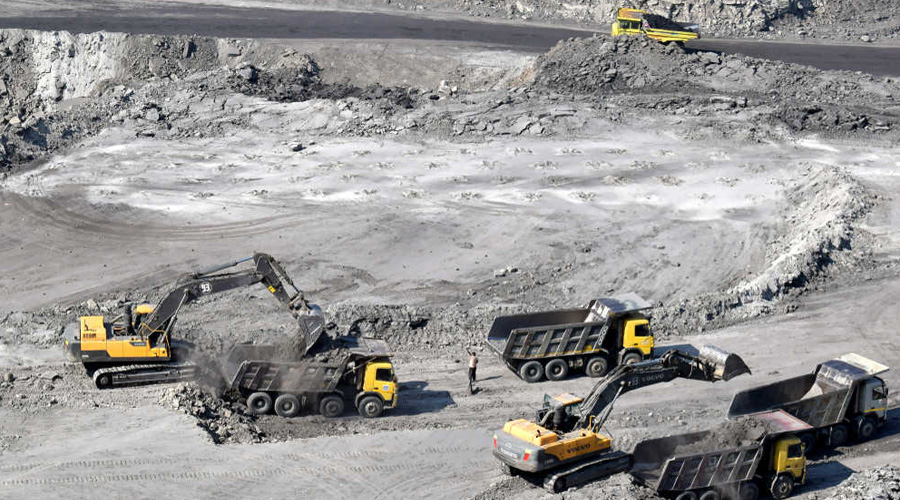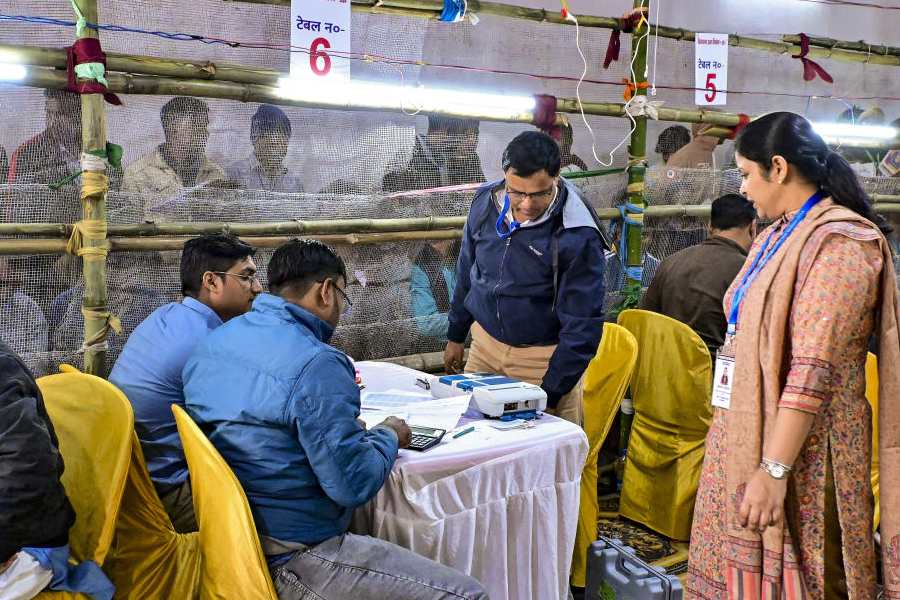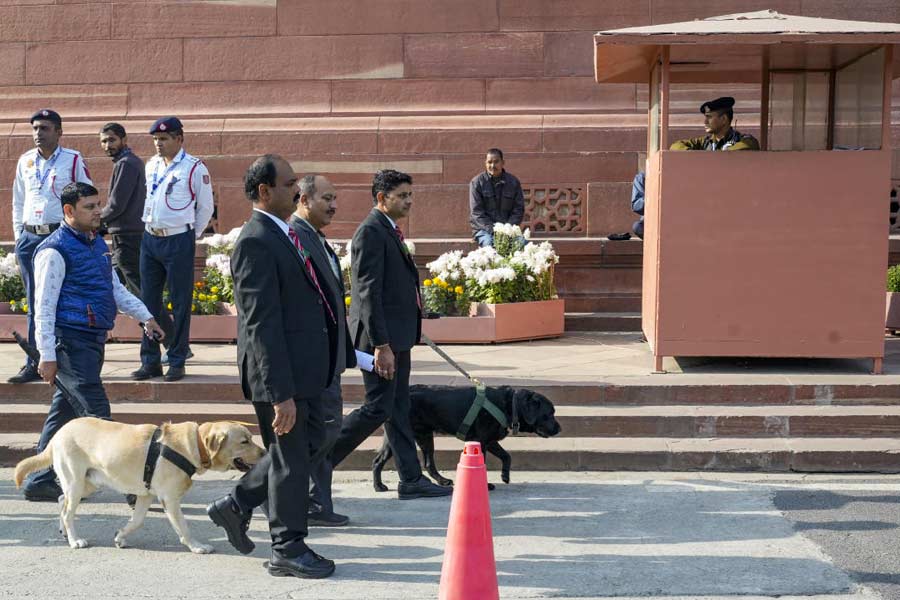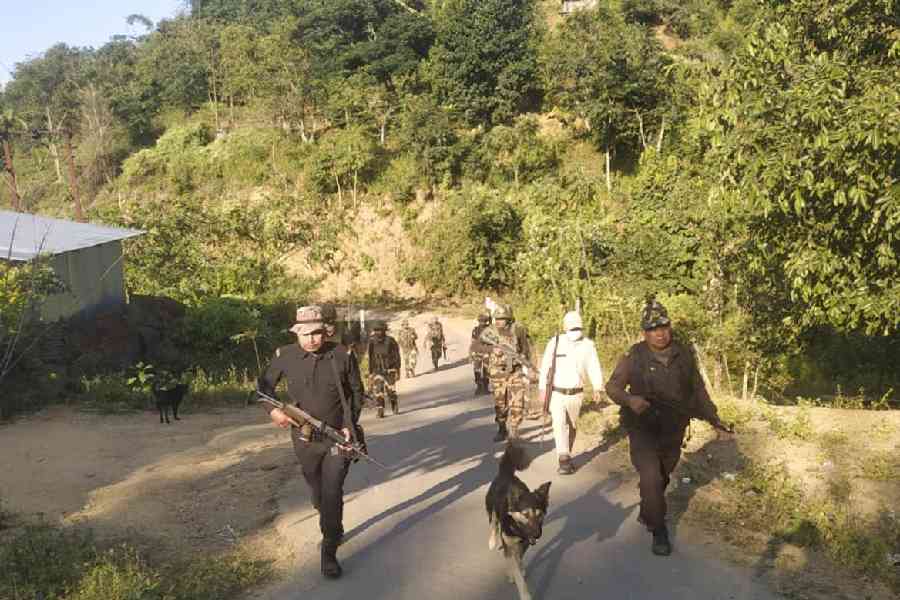The Supreme Court on Monday took note of Jharkhand government’s claim about non-compliance of its earlier direction regarding re-grassing of mined areas by leaseholders after ceasing operations and warned that it might take contempt action against the concerned authority.
A bench headed by Chief Justice S.A. Bobde told the Centre that no groundbreaking after e-auction of coal blocks for commercial mining be done in Jharkhand without the apex court's nod.
The apex court also said it might take action against concerned officials if the directions given by the top court were not complied with. “Don't break ground for mining in Jharkhand without our nod,” the bench, also comprising Justices A S Bopanna and V Ramasubramanian, said.
The apex court, while noting that mining results in complete elimination of grass, had on January 8 directed the government to impose the condition on leaseholders that they will have to restore the mined area by re-grassing it after ceasing operations.
The top court, which had passed the order on a separate petition against large-scale illegal mining across the country, had asked the Centre to devise appropriate methods to ensure compliance of this condition.
During the hearing conducted through video-conferencing on Monday, the bench was apprised by advocate Tapesh Kumar Singh, appearing for the Jharkhand government, that direction given by the top court regarding re-grassing was not being complied with.
“Attorney General, if our order is not complied with then we may take contempt action against the concerned. We want strict compliance of our order. Re-grassing needs to be done for grazing animals. Animals cannot graze due to mining,” the bench said.
The apex court asked Singh to give the details to Attorney General K. K. Venugopal so that he would look into it.
The bench, which was hearing the pleas filed by Jharkhand government on the issue of e-auction of coal block for commercial mining in the state, said it would hear the matter in January.
Senior advocate Fali S Nariman, who appeared for Jharkhand government, said since the matter was listed in January, an independent authority could be sent to examine the sites.
“Give us some names Mr Nariman as one of the names you suggested has passed away. We will keep the matter in the first week of January,” the bench said.
Besides the pleas filed by Jharkhand government, the bench also took up a separate plea related to the issue and issued notice to the Centre and others seeking their replies on it.
On November 6, the apex court had categorically told the Centre that the November 9 e-auction of 34 coal blocks, including five in Jharkhand, shall be subject to its final order.
The apex court had also asked the Centre to inform the bidders that benefits of any nature to them will be provisional.
The Attorney General, appearing for the Centre, had told the bench that no trees will be cut in the area.
In its note filed earlier in the matter, the Centre had given details of coal mines which are to be auctioned and their distance from nine eco-sensitive zones/ protected area/wildlife sanctuary.
It had said out of nine coal blocks, five will be auctioned while the auction of four coal mines--Choritand Tiliaya, Chitarpur, North Dhadhu and Sheregarha-have been cancelled due to receipt of less than two bids.
On November 9, financial bids were to be opened for five other coal blocks of Jharkhand which include--Gondalpara, Rajhara North, Urma Paharitola, Brahmadiha and Chakla.
It had also referred to various cases, laws and office memorandum of Ministry of Environment, Forest and Climate Change with regard to the procedure for consideration of development projects located within 10 km of National Park/Wildlife Sanctuary seeking environmental clearance under the provisions of Environmental Impact Assessment (EIA) notification, 2006.
On November 4, the top court had said it intend to pass an order that any proposed mining block within the 50 km radius of an eco-sensitive zone will not be e-auctioned in Jharkhand and a similar direction may be passed if such things are brought to its notice from other states.
Maintaining that it only wanted to ensure that the "forests are not destroyed," the top court had also said it was mulling over the setting up of an expert committee to examine whether an area near the proposed mining sites in Jharkhand qualifies to be an eco-sensitive zone.
The Centre had opposed the remarks of the top court saying the mining sites were at a distance of 20 to 70 km from such eco-sensitive zones and in states like Goa, the mining would become impossible if this distance parameter is applied.
On September 30, the top court had observed that if an area falls under eco-sensitive zone then neither the Centre nor the state government will have the right to mine it.
Jharkhand had sought postponing of e-auction of coal block for commercial mining in the state till its suit under Article 131 was decided by the top court.










